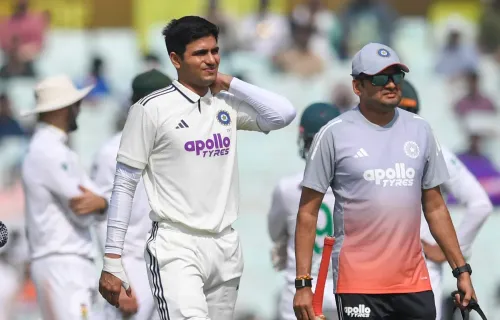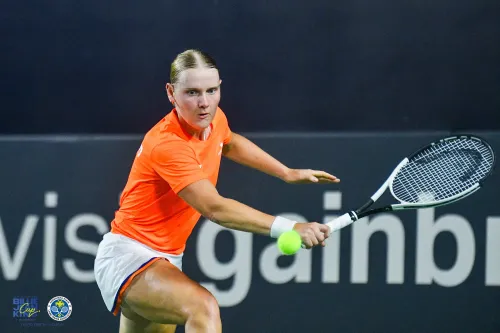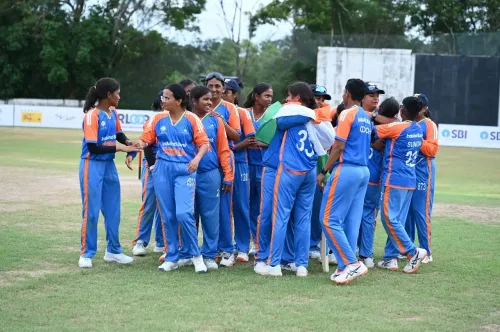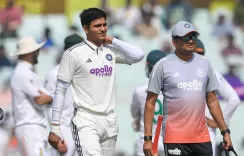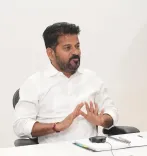Can Pakistan's Clarity and Consistency Propel Them in the Women's World Cup?
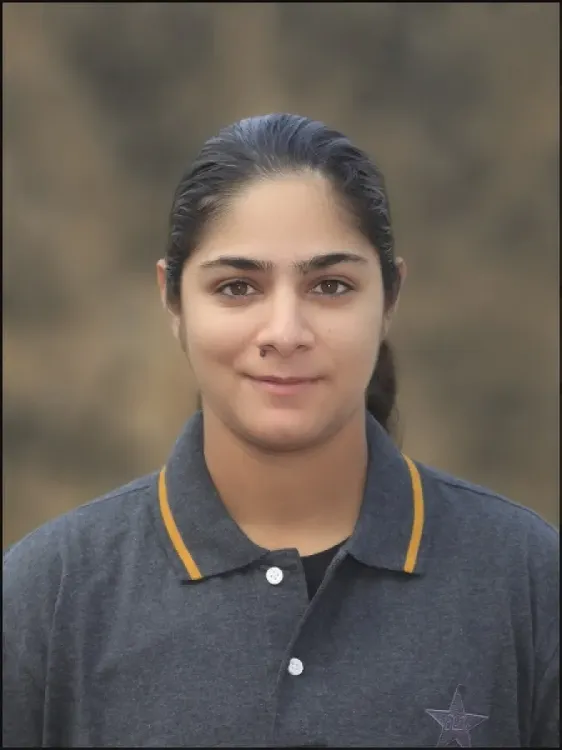
Synopsis
Key Takeaways
- Pakistan's strong spin attack is crucial for success in Sri Lanka.
- Fatima Sana's leadership and performance are key to the team's dynamics.
- Fielding will play a significant role in determining match outcomes.
- Improved clarity in batting roles offers hope for overcoming past inconsistencies.
- Key players must rise to the occasion for Pakistan to excel.
New Delhi, Oct 1 (NationPress) As Pakistan prepares for the 2025 Women’s ODI World Cup, they carry the momentum from their qualifying triumph in April, which saw them decisively defeat teams like West Indies and Bangladesh. With all matches scheduled in Colombo, the team’s spin-focused strategy, coupled with Fatima Sana’s pivotal role and Sidra Amin’s reliable batting at the top, suggests a squad determined to transcend mere group stage participation.
Nevertheless, concerns linger: Can they withstand high-pressure scenarios, and will their fielding perform when it counts? In an exclusive interview with IANS, former Pakistan cricketer Marina Iqbal shared insights on the team’s preparedness for this significant event, the advantages of playing at a single venue, Fatima’s development, and more. Here are key excerpts:
Q. Could this be the World Cup where Pakistan overcomes its inconsistency and challenges the top teams?
A. Currently, Pakistan’s batting shows a new clarity, particularly with the opening pair of Sidra Amin and Muneeba Ali, with Sidra in remarkable form. There’s evident role clarity and a defined approach to their innings, a crucial improvement compared to the past three to four years, which is benefiting their ODI performance.
To truly make a mark, they need to excel in all facets - batting, bowling, and fielding - since this stage is the largest and they face formidable opponents. They have the talent, but success hinges on their ability to perform with clarity on any given day.
Q. How significant is it that Pakistan will play all their matches in Colombo, while other teams will be traveling?
A. Competing at a single venue undoubtedly offers a considerable advantage. Teams become familiar with the playing conditions - from the outfield to the temperature and atmosphere, which can enhance performance. However, without a thorough understanding of how to leverage this advantage and optimize player usage, it can go to waste.
Pakistan must maximize this opportunity by determining batting orders and combinations that suit the conditions best. Execution will be critical - how they adapt their strategies against different teams will be essential.
Q. What impact have you noted from Fatima Sana’s leadership on the team?
A. Fatima Sana is a remarkable individual and a great leader. From her early days, she understood the rigors of international cricket, supported significantly by seniors, particularly Sana Mir. We recognized her potential immediately; she embodies the qualities of a natural leader who thrives on challenges.
She has achieved a remarkable balance between her roles as a captain and a player, which has enhanced her performance in both batting and bowling. This equilibrium is vital, not only for her but for the team as a whole.
Q. Can Nashra Sandhu and Sadia Iqbal establish a dependable spin bowling unit?
A. Both have been integral to Pakistan’s bowling lineup. The conditions in Colombo present a prime opportunity for spinners to exploit, especially since they’ll quickly acclimate to the environment. Sadia has consistently excelled, while Nashra’s performance in the South Africa series has bolstered her confidence ahead of the World Cup.
While the spinners shine, fast bowlers must also rise to the occasion. They cannot solely depend on two spinners in this longer format; it’s crucial for the pace attack to play their part.
Q. How do you view Sidra Amin's emergence as a key batter?
A. Sidra has found a great balance and clearer understanding of her role. The management has defined her position as an innings anchor, enabling her to score effectively. In this 50-over format, she will need support from her teammates, particularly given the challenging conditions in Sri Lanka.
While she has been scoring well, she cannot shoulder the entire batting responsibility alone. With contributions from Muneeba, Omaima, Natalia, and Aliya, Sidra’s performance will be crucial for the team’s success.
Q. Does reliance on Sidra, Fatima, and Nashra make Pakistan vulnerable?
A. All three are key players, but Pakistan is seeing growth from other members too. Aliya and Muneeba need to deliver, while Natalia can play a significant role in the middle order. The performances against South Africa have clarified their right combinations for ODIs.
While Eyman Fatima offers power-hitting, her potential has not been fully utilized. Others like Shawaal Zulfiqar show promise but have faced challenges. The current squad appears to understand their roles well, reducing dependency on just a few players.
Q. Could inconsistent fielding and pressure issues cost Pakistan in tight matches?
A. Fielding has long been a concern, particularly under pressure. This was evident in the qualifiers and is an area that requires improvement, both collectively and individually. In high-pressure situations, maintaining composure and executing well is essential.
The mental aspect of handling pressure is crucial; fielding can indeed be a game-changer. Key moments often hinge on catching and run-outs, significantly influencing match outcomes.

